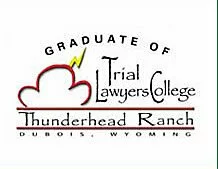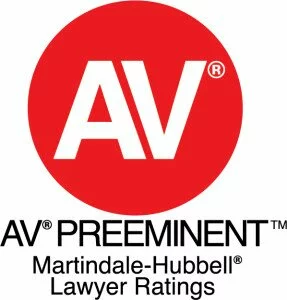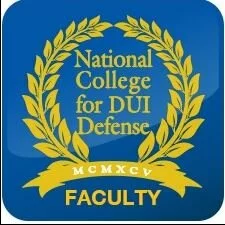Find Michigan DUI Lawyer | Michigan Breath Testing Adminstrative Rules
Administrative Rule R 325.2651 et seq.
DEPARTMENT OF STATE POLICE
SPECIAL OPERATIONS DIVISION
TESTS FOR BREATH ALCOHOL
(By authority conferred on the department of state police by 1945 PA 327, MCL 259.190, 1949 PA 300, MCL 257.625h, and 1994 PA 451, MCL 324.80181 AND MCL 324.82137)
R 325.2651 Definitions.
Rule 1. (1) As used in these rules:
(a) “Acts” means 1945 PA 327, MCL 259.190, 1949 PA 300, MCL 257.625a, 1993 PA 354, MCL 462.359, 1994 PA 451, MCL 324.80181, MCL 324.81136, AND MCL 324.82137.
(b) “Class I operator” means a person who is trained to administer a preliminary breath alcohol analysis on a preliminary breath alcohol test instrument specified by the department.
(c) “Class II operator” means a person who is certified by the department to administer an evidential breath alcohol analysis on an evidential breath alcohol test instrument specified by the department.
(d) “Class IIIA operator” means a person who is certified by the department to do all of the following:
(i) Administer an evidential breath alcohol analysis on an evidential breath alcohol test instrument specified by the department.
(ii) Administer a preliminary breath alcohol analysis on a preliminary breath alcohol test instrument specified by the department.
(iii) Verify and calibrate, as required, preliminary breath alcohol test instruments.
(iv) Train personnel in the use of preliminary breath alcohol test instruments.
(e) “Class IIIB operator” means a person who is certified by the department to do both of the following:
(i) Administer an evidential breath alcohol analysis on an evidential breath alcohol test instrument specified by the department.
(ii) Provide service on an evidential breath alcohol test instrument as specified by the department.
(f) “Class IV operator” means a person who is certified by the department to do all of the following:
(i) Administer an evidential breath alcohol analysis on an evidential breath alcohol test instrument specified by the department.
(ii) Administer a preliminary breath alcohol analysis on a preliminary breath alcohol test instrument specified by the department.
(iii) Verify, calibrate, and service, as required, evidential and preliminary breath alcohol test instruments.
(iv) Train class I, class II, class IIIA, and class IIIB operators in the use of evidential or preliminary breath alcohol test instruments.
(g) “Department” means the department of state police.
(h) “Evidential breath alcohol analysis” means chemical analysis of an essentially alveolar breath sample that indicates a specific result in grams of alcohol per 210 liters of breath.
(i) “Evidential breath alcohol test instrument” means an evidential breath testing device that indicates a specific result in grams of alcohol per 210 liters of breath.
(j) “Preliminary breath alcohol analysis” means chemical analysis of essentially alveolar breath samples that indicates the presence or absence of alcohol in a person’s blood.
(k) “Preliminary breath alcohol test instrument” means a breath alcohol screening device that indicates the presence or absence of alcohol in a person’s blood.
(2) Terms used in the acts have the same meanings when used in these rules.
History: 1954 ACS 78, Eff. Feb. 28, 1974; 1979 AC; 1984 MR 3, Eff. Apr. 7, 1984; 1988 MR 8, Eff. Aug. 31, 1988; 1992 MR 3, Eff. Apr. 7, 1992; 1994 MR 12, Eff. Dec. 28, 1994; 2003 MR 18, Eff. Sept. 30, 2003.
R 325.2652 Approved equipment.
Rule 2. (1) Evidential and preliminary breath alcohol test instruments shall be tested by, and shall meet the existing model specifications for evidential breath alcohol analysis as established by, the United States department of transportation, national highway traffic safety administration. The specifications, identified as “Model Specifications for Evidential Breath Testing Devices,” 49 F.R. p 48855 et seq.,
(December 14, 1984), as amended by 58 F.R. p 48705 et seq.,
(September 17, 1993), are adopted in these rules by reference. A copy of the specifications and a current conforming products list are available from the Superintendent of Documents, United States Government Printing Office, Washington, DC 20402, or from the Michigan State Police, Special Operations Division, 714 South Harrison Road, East Lansing, Michigan 48823, at a cost as of the time of adoption of these rules of $5.00.
(2) If the United States department of transportation discontinues the testing of evidential breath alcohol test instruments or the issuance of model specifications for such testing, only those instruments tested and approved by the department shall be used.
(3) Equipment, including accessories and supplies, for determining evidential or preliminary breath alcohol analysis shall be approved by the department before use.
(4) An application for equipment approval shall be submitted to the department.
History: 1954 ACS 78, Eff. Feb. 28, 1974; 1979 AC; 1984 MR 3, Eff. Apr. 7, 1984; 1988 MR 8, Eff. Aug. 31, 1988; 1992 MR 3, Eff. Apr. 7, 1992; 1994 MR 12, Eff. Dec. 28, 1994.
R 325.2653 Equipment accuracy.
Rule 3. (1) An evidential breath alcohol test instrument shall be verified for accuracy at least once during each calendar week, or more frequently as the department may require, by a class II, class IIIA, or class IIIB operator. The test for accuracy shall be made in a prescribed manner using a standard alcohol solution that is approved by the department. For the instrument to meet the requirements for accuracy, a test result of .076 to .084, inclusive, shall be obtained when using a controlled device that delivers an alcohol vapor concentration of .080 grams of alcohol per 210 liters of vapor. Other vapor concentrations shall show proportionally accurate results.
(2) A preliminary breath alcohol test instrument shall be verified for accuracy at least monthly, or more frequently as the department may require, by a class IIIA or class IV operator. The test for accuracy shall be made in a prescribed manner using a standard alcohol solution that is approved by the department. For the instrument to meet the requirements for accuracy, a test result of .076 to .084, inclusive, shall be obtained when using a controlled device that delivers an alcohol vapor concentration of .080 grams of alcohol per 210 liters of vapor.
(3) Approved evidential breath alcohol test instruments shall be inspected, verified for accuracy, and certified as to their proper working order by a certified class IV operator or the instrument manufacturer’s authorized representatives approved by the department within 120 days, inclusive, of the previous inspection.
History: 1954 ACS 78, Eff. Feb. 28, 1974; 1979 AC; 1984 MR 3, Eff. Apr. 7, 1984; 1988 MR 8, Eff. Aug. 31, 1988; 1992 MR 3, Eff. Apr. 7, 1992; 1994 MR 12, Eff. Dec. 28, 1994; 2003 MR 18, Eff. Sept. 30, 2003.
R 325.2654 Equipment maintenance.
Rule 4. (l) The maintenance and repair of equipment approved by the department for evidential and preliminary breath alcohol analysis shall be at the expense of the agency using the equipment, unless arrangements exist with the department to have this service provided by class IIIB or class IV operators who are certified by the department or provided by the instrument manufacturer’s authorized representatives approved by the department.
(2) Subsequent to repair or maintenance, and before being placed in service, preliminary and evidential breath alcohol test instruments shall be verified for accuracy in accordance with the provisions of R 325.2653 and records of verification shall be kept as required by the department.
History: 1954 ACS 78, Eff. Feb. 28, 1974; 1979 AC; 1984 MR 3, Eff. Apr. 7, 1984; 1992 MR 3, Eff. Apr. 7, 1992.
R 325.2655 Techniques and procedures.
Rule 5. (1) A procedure that is used in conjunction with evidential breath alcohol analysis shall be approved by the department and shall be in compliance with all of the following provisions:
(a) Evidential breath alcohol test instruments shall be operated only by class II, class IIIA, class IIIB, and class IV operators.
(b) All analyses shall be conducted using the department-approved procedures and report forms as required.
(c) Prescribed records of operation, analyses, and results shall be maintained at the instrument location and copies shall be forwarded to the department as required.
(d) The department shall test samples from each lot of ampoules of chemical solution used in the state in conjunction with evidential breath alcohol test instruments. The department shall certify for use those lots of ampoules that are found to be proper in chemical composition.
(e) A person may be administered a breath alcohol analysis on an evidential breath alcohol test instrument only after being observed for 15 minutes by the operator before collection of the breath sample, during which period the person shall not have smoked, regurgitated, or placed anything in his or her mouth, except for the mouthpiece associated with the performance of the test.
(f) A second breath alcohol analysis shall be requested from the person being tested and administered, unless the person refuses to give the second sample or a substance is found in the person’s mouth subsequent to the first test that could interfere with the test result. Obtaining the first sample is sufficient to meet the requirements for evidentiary purposes prescribed in 1949 PA 300, MCL 257.625c. The purpose of obtaining a second sample result is to confirm the result of the first sample. A second sample result shall not vary from the first sample result by more than the following values:
Table 1
Allowable variation of
Blood alcohol second sample result
concentration range from the first
0.00 – 0.14 +/- 0.01
0.15 – 0.24 +/- 0.02
0.25 – 0.34 +/- 0.03
0.35 – or more +/- 0.04
If the variation is more than that allowed, a third breath sample shall be requested from the person being tested and a third result may be obtained. If the third result does not conform to the allowable variation of either of the first two tests, as established in table 1, the person shall be requested to submit a blood or urine sample for analysis by an approved laboratory.
(g) The results of a breath alcohol analysis of a person’s breath shall be expressed in terms of grams of alcohol per 210 liters of breath, truncated to the second decimal place. For example, 0.237 found shall be reported as 0.23.
(2) A procedure that is used in conjunction with preliminary breath alcohol analysis shall be approved by the department and shall be in compliance with all of the following provisions:
(a) Preliminary breath alcohol test instruments shall be operated only by operators trained by class IIIA or class IV operators to operate such equipment.
(b) A person may be administered a breath test on a preliminary breath alcohol test instrument only after it has been determined that the person has not smoked, regurgitated, or placed anything in his or her mouth for at least 15 minutes.
(c) Prescribed records shall be maintained at the instrument location and copies shall be forwarded to the department as required.
(3) A person’s welfare shall be protected by requesting medical assistance if the person has a body alcohol concentration of 0.35 or more.
History: 1954 ACS 78, Eff. Feb. 28, 1974; 1979 AC; 1984 MR 3, Eff. Apr. 7, 1984; 1988 MR 8, Eff. Aug. 31, 1988; 1992 MR 3, Eff. Apr. 7, 1992; 1992 MR 4, Eff. Apr. 7, 1992 (correction); 1994 MR 12, Eff. Dec. 28, 1994; 2003 MR 18, Eff. Sept. 30, 2003.
Editor’s Note: An obvious error in R 325.2655 was corrected at the request of the promulgating agency, pursuant to Section 56 of 1969 PA 306, as amended by 2000 PA 262, MCL 24.256. The rule containing the error was published in Michigan Register, 2003 MR 18. The memorandum requesting the correction was published in Michigan Register, 2004 MR 5.
R 325.2656 Operator certification.
Rule 6.
(1) Evidential breath alcohol test instrument operator certification training courses supervised by the department are offered only to authorized police agency personnel.
(2) Certification on evidential breath testing equipment requires an applicant to successfully complete a course of instruction that is approved by the department.
(3) The operation of a preliminary breath testing instrument requires an applicant to successfully complete a course of instruction as approved by the department.
(4) Evidential breath alcohol test instrument operators shall successfully pass the examinations given by the department to obtain certification as an operator. Upon successful completion of the examinations, a person shall be issued a certification card which shall remain the property of the department. In the case of failure to pass a prescribed examination, a second opportunity to take the examination shall be provided as the department may direct. Failure to successfully complete the examination a second time necessitates repeating the operator course of instruction to qualify for certification.
(5) An operator shall comply with all applicable department rules, policies, and procedures or his or her certification may be suspended and his or her certification card forfeited to the department. Requests for reinstatement of operator certification shall be made to the department in writing and, upon approval, may require attendance at, and the successful completion of, a certification school.
History: 1954 ACS 78, Eff. Feb. 28, 1974; 1979 AC; 1984 MR 3, Eff. Apr. 7, 1984; 1988 MR 8, Eff. Aug. 31, 1988; 1992 MR 3, Eff. Apr. 7, 1992; 1994 MR 12, Eff. Dec. 28, 1994.
R 325.2657 Rescinded.
History: 1954 ACS 78, Eff. Feb. 28, 1974; 1979 AC; 1984 MR 3, Eff. Apr. 7, 1984; 1992 MR 3, Eff. Apr. 7, 1992; rescinded 1994 MR 12, Eff. Dec. 28, 1994.
R 325.2658 Class IV operator certification.
Rule 8. (1) The department shall certify selected class IIIA and class IIIB operators as class IV operators after the selected operators successfully complete additional department-approved training.
(2) A class IV operator shall serve as an agent of the department to perform the following functions regarding evidential breath alcohol test instruments:
(a) Service, repair, and calibrate equipment.
(b) Conduct inspections for compliance with applicable department rules, policies, and procedures.
(c) Serve as an instructor at operator certification courses as directed by the department.
(3) Work assignments and activities regarding the breath alcohol testing program shall be coordinated by the department.
History: 1954 ACS 78, Eff. Feb. 28, 1974; 1979 AC; 1984 MR 3, Eff. Apr. 7, 1984; 1992 MR 3, Eff. Apr. 7, 1992; 1994 MR 12, Eff. Dec. 28, 1994.
R 325.2659 Laboratory tests.
Rule 9. Laboratory testing of blood, urine, or other bodily substances for its alcohol content, for the purpose of the acts, shall be made by the department or a laboratory either licensed under 1968 PA 235, MCL 325.81 to 325.92 or approved by the department. The director of the department shall approve equipment, personnel, and procedures to be used in the determination of the alcohol content of blood, urine, or other bodily substances for the purpose of enforcement of the acts. Failure to maintain the standards prescribed by the department may result in the limitation or revocation of the laboratory license issued under 1968 PA 235 or approval of the laboratory by the department to conduct alcohol tests.
History: 1954 ACS 78, Eff. Feb. 28, 1974; 1979 AC; 2003 MR 18, Eff. Sept. 30, 2003.











